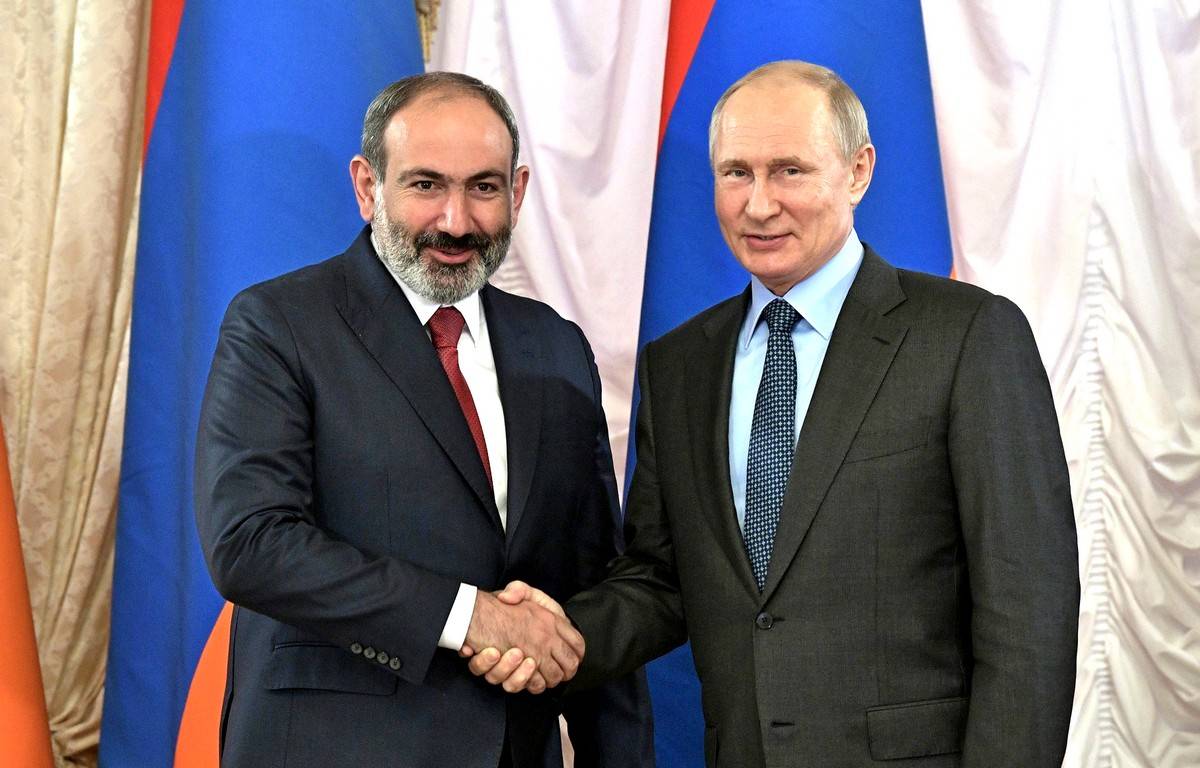
This also involves the Caucasus region, for which the relations between Russia and Armenia (which have long been stable and well-defined) are essential. Armenia plays an extremely important role in Russia’s strategy in the region. However, prior to the last Karabakh war, relations between the two countries have been different than the ones after it. They were determined by the complete dominance of Russia in the political, economic and military spheres and extreme dependence of Armenia. This asymmetry has led Armenia to become a hostage to the situation.
Russian trap for Armenia. For now Armenia’s main economic and military ally is Russia, which has been trusted to provide Armenia protection from Turkey and, in general, adequate security within the CSTO. In fact, throughout the post-Soviet period, Russia controlled Armenia economically and politically, which significantly undermined its sovereignty, preventing from the opportunities to pursue a favorable policy with the West and forcing it to risk its relations with Ukraine. In practice, Armenia supported Russia in all issues concerning Ukraine. This has not only damaged relations with the West, but also created a negative opinion about Armenia among a large part of Ukrainians. Of course, this perception was based on simplified ways of assessing Armenian policy towards Ukraine. They did not include the understanding that Armenia had practically no choice in this context, as Russia was seen as a key ally and guarantor of security being the largest investor in the Armenian economy. But this did not prevent many representatives of the Armenian diaspora in Ukraine who fought for Karabakh from defending our country in Donbas earlier.
Internal developments. Although relations between Russia and Armenia were close and predictable, they still had significant disputes in the context of Russia’s foreign policy in the region, especially in the field of defense. Today, these contradictions will become more intensified.
Russia’s most controversial action was to supply weapons to Azerbaijan, which later used it against the Armenian army. These deliveries included the S-300PMU-2 “Favorit” air defense missile system, the “Smerch” (Tornado) multiple rocket launchers, the T-90C battle tanks, the 2C19 “Msta-C” self-propelled artillery systems, the Mi-35M attack helicopters, as well as other weapons and equipment which technically surpassed the weapons that Russia provided for Armenia. This caused concerns in Armenia itself and changed the opinion about the Putin’s Russia. The Soviet nostalgia is fading away, and the Russian state model is giving away to the European one. Therefore, Russia is less and less attractive for the Armenian young generation.
The war over Karabakh in 2020 completely changed the Armenian public’s perception of Russia. The war has become an existential challenge for Armenians, as it touches the emotive issues of traumatic past, religion and trust in allies. If before the war Russia’s weapons supplies to Azerbaijan may have caused some mistrust on the part of Armenia, the latter still did not lose faith in its ally. However, Russia’s position concerning the events of late 2020 came as a shock and tragedy to Armenia.
Russia has turned from an ally into a betrayer for most of the Armenian population. This led not only to the great disappointment of the Armenians, but also to the fact that Russia’s claims have been discredited and the masks removed now. Therefore, even if Armenia remains dependent on Russia, Armenian society will certainly get rid of many illusions. This means that while being politically and economically dependent, Armenia will now have to take into account the internal situation in its relations with Russia. Of course, this will change the bilateral relations and significantly affect the international situation in the post-Soviet space. Although, in this context new possibilities appear for Ukraine.
Changes in Russia-Armenia bilateral relations clearly demonstrate Russia’s priorities in the region, which are unlikely to take into account the interests of Armenia itself and its people. Even less the ones of the population of Karabakh. Disappointment in Russia and its loss of authority will be an important factor determining the bilateral relations in the long run. Today, these relations have become another evidence of the tectonic changes taking place in the post-Soviet space.